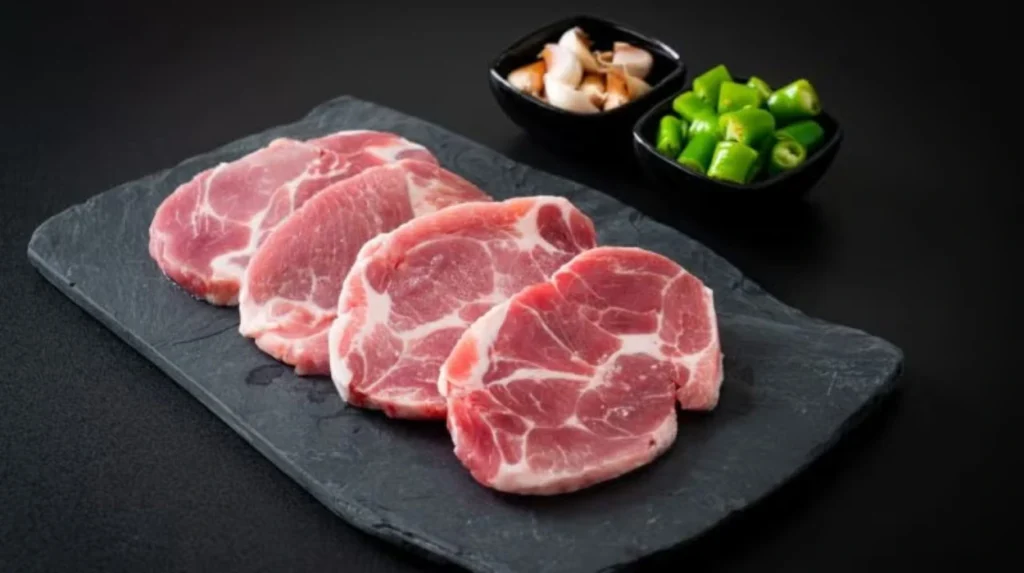The European Union’s pork industry faces a dire threat following China’s recent imposition of preliminary anti-dumping duties on pork and pork by-products imported from the EU. These tariffs, ranging from 15.6% to as high as 62.4%, are set to take effect from September 10, 2025, exacerbating an ongoing trade dispute between Beijing and Brussels with serious implications for European producers and exporters.
Context and Emergence of the Trade Dispute
The tariffs stem from a trade conflict that escalated after the European Commission imposed tariffs on Chinese electric vehicles earlier this year, citing concerns over “unfair subsidies” offered by China that threaten EU manufacturers. China responded by launching an investigation in June 2024 into alleged dumping practices by the EU pork sector.
Dumping, in trade terms, refers to exporting goods at prices lower than the home market or below production cost, which can inflict damage on the importing country’s domestic producers. According to the Chinese Ministry of Commerce, the investigation found that European pork imports were sold at unfairly low prices, materially affecting China’s pork industry. The duties imposed are provisional, pending a final determination expected by mid-December 2025.
Economic Impact on European Pork Producers
EU lobbying groups representing farmers and agri-cooperatives, including Copa and Cogeca, have expressed significant concern over the sweeping tariffs and warn of “serious damage” to the bloc’s pork trade.
The pork sector is particularly vulnerable because China is the world’s largest consumer of pork and one of the EU’s most lucrative markets. EU pork exports to China last year were valued at over €2 billion, with countries such as Spain, the Netherlands, Denmark, Belgium, and France among the major exporters.
Michael Gore, Managing Director of Febev, Belgium’s federation for slaughterhouses and meat wholesalers, remarked,
“The tariffs will certainly have an impact on production and the value of pig carcasses.”
He pointed out that many pork by-products highly regarded in China, such as trotters and ears, do not have strong demand in the European market, making China an essential destination for these products. Gore lamented,
“Dozens of containers are now at sea and will be caught out by the measure,”
emphasizing the immediate financial strain on exporters.
Country-Specific Concerns and Exporter Challenges
Spain, Europe’s leading pork exporter to China, is expected to bear a substantial brunt of the tariffs. In 2024, Spain shipped more than 540,000 tons of pork to China, worth over €1 billion, accounting for 20% of its total exports. Several prominent Spanish pork producers such as El Pozo, Campofrío, and Sánchez Romero Carvajal face duties between 15.6% and 20%, while companies failing to cooperate with the investigation could see tariffs surge to 62.4%.
Similarly, exporters from the Netherlands and Denmark have faced duties in the 15.6% to 32.7% range, while companies refusing cooperation bear the highest anticipated levy.
Belgium’s pork sector is anxious too. Having only resumed exports to China earlier this year after a prolonged ban due to swine fever, the new tariffs threaten to stifle growth. Gore expressed hope for political and diplomatic interventions to mitigate the impact, noting there are “lower duties applied to certain countries, so there must be room for manoeuvre.”
Political and Diplomatic Repercussions
The imposition of tariffs reflects a broader pattern of escalating tensions between the EU and China. Apart from pork, China is investigating other EU agricultural products, including dairy and brandy, while the EU continues to challenge China’s trade practices in other sectors.
EU officials have criticized China’s anti-dumping investigation as based on “dubious claims and inadequate evidence.” The European Commission has vowed to “take all the necessary steps to defend our producers”, underlining its commitment to stand firm against what it views as unjustified retaliation.
Despite harsh rhetoric, Chinese officials have emphasized a willingness to engage in dialogue to resolve the dispute. A spokesperson for the Chinese Ministry of Commerce told state media,
“China has consistently exercised caution and restraint in the use of trade-remedy measures,”
adding that the government remains open to consultation with EU counterparts.
Impact on the Global Pork Market and Supply Chains
The tariffs will almost certainly lead to a realignment of pork supply chains, forcing European producers to seek alternative markets or absorb higher costs, which could depress profit margins. Given that a significant portion of the pork exports to China consists of offal — including pig ears, noses, and feet — items that have limited appeal elsewhere, the EU pork industry’s options may be constrained.
Analysts warn that these measures could contribute to instability in pork prices across Europe, already strained by challenges like disease outbreaks among livestock and fluctuating consumer demand due to inflationary pressures.
Anne Richard, director of the French pork industry association INAPORC, highlighted industry anxieties, stating,
“This is concerning news for us. We’re apprehensive about how this will influence prices in the European market.”
Outlook and Next Steps
The Chinese duties are a provisional measure subject to review with the investigation continuing until December 16, 2025. There is precedent for China to extend such investigations and maintain tariffs for prolonged periods, which could mean a longer-term challenge for EU exporters.
The dispute underscores the fragility and complexity of global trade relationships, especially when intertwined with geopolitical tensions. While dialogue remains possible, the escalation suggests both the EU and China are preparing for a protracted negotiation rather than a swift resolution.
For now, the pork sector in Europe braces for potential losses and market disruptions while hoping for diplomatic breakthroughs to soften the impact of China’s anti-dumping tariffs.







